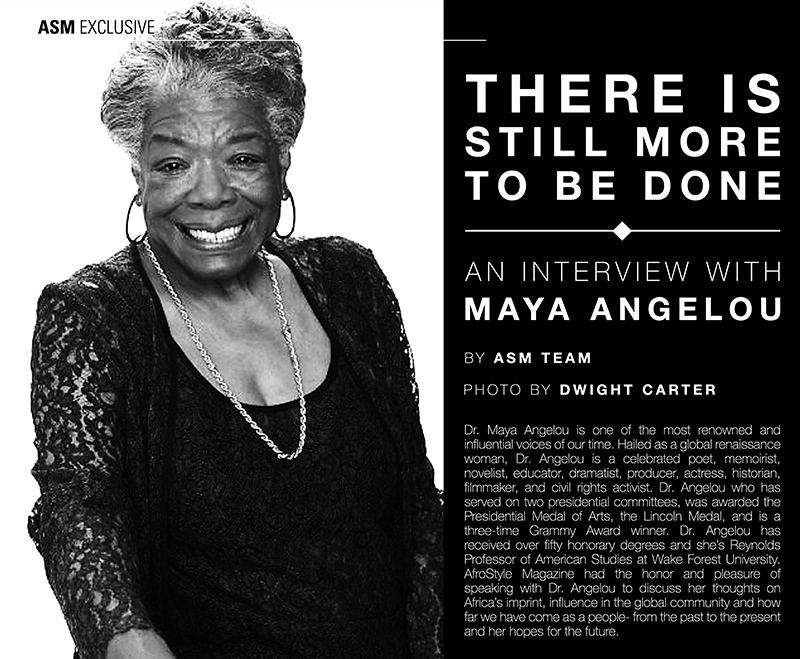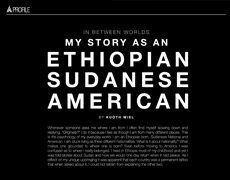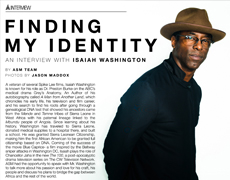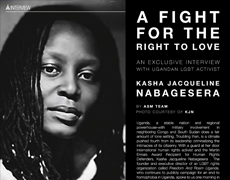Dr. Maya Angelou is one of the most renowned and influential voices of our time. Hailed as a global renaissance woman, Dr. Angelou is a celebrated poet, memoirist, novelist, educator, dramatist, producer, actress, historian, filmmaker, and civil rights activist. Dr. Angelou who has served on two presidential committees, was awarded the Presidential Medal of Arts, the Lincoln Medal, and is a three-time Grammy Award winner. Dr. Angelou has received over fifty honorary degrees and she’s Reynolds Professor of American Studies at Wake Forest University. AfroStyle Magazine had the honor and pleasure of speaking with Dr. Angelou to discuss her thoughts on Africa’s imprint, influence in the global community and how far we have come as a people- from the past to the present and her hopes for the future.
ASM: You have dealt with Leaders in the Continent of Africa in the pivotal period throughout self-determination, struggles and of dramatic reorganization. We look to you as being exposed to unique bodies of personalities which most people would not assemble in a lifetime while in Africa. A lot of people here in the United States and beyond have not had the opportunity to go there and experience the Continent, we would like to know what lessons from there can be Germaine to the condition of the 21st century. What are the lessons that strike you that we can incorporate?
MA: Yes. We are at our very best, always teachers and students. So we are always being offered the chance to learn and being offered the chance to teach. It is of particular interest that the ANC in South Africa headed by the Madiba Nelson Mandela sixty years ago; and the PAC- the Pan African Congress also in South Africa took Martin Luther King’s suggestions in the United States. So they were able to learn something. Kwame Nkurumah in Ghana along with Nigerian freedom fighters took wise advice and action from the Seventh Christian Leadership Conference and SNIC in the United States. So we continue to learn and teach each other and I think they are what we do at our very best. I lived in Egypt for a while where I worked as a journalist for two years. I lived in Ghana for a while and married a South African Freedom Fighter; and so we moved around the world. He was of course anti-apartheid and worked against it in his country as I was a support to him. I find that when people say they want freedom, I feel that what they really mean is that they do not want to work for it. They want it given because they believe it is owed to them. Fredrick Douglas said that power has never been known to give up any part of itself on the simple request of it. You do not just go up to power and say “I would like some of that if you please sir.” And so what you do is fight for it. You make some plans; have some allies and you work to earn every freedom. It can’t be just given just by a simple request of it.
“…we are always being offered the chance to learn and being offered the chance to teach. I think they are what we do at our very best…”
ASM: Would you say we as a people and humanity have achieved the measure of freedom or there is much to be done from this point on?
MA: I think that Humanity achieved some freedom but no development is ever in one line. It does not just go straight across in getting more freedom. What happens is that if you make a chart with a paper and a pen or pencil, and start drawing out what growth looks like; you will find that you grow about a quarter of an inch and then go down; though you are moving forward but you are down about an eighth of an inch. But then you go up again maybe about two inches and then go back down about four inches. That is the way life is. That is the way development is. So we cannot say that we are not going or moving forward simply because we are not following the same line. On the other hand, we have to admit that we are better than we were. There was a time when people- men and women were lynched with every law supporting it. That is not done anymore due to changes in legislation. Although not done physically, there is still serious racism.
ASM: In your travels and exposures, have you been able to notice a particular kind of African Vision of Flourish and a Freedom or do you think is more of a Universal Drive towards a human liberty that people are after?
MA: Well, Culture is Culture. There are certain things which are cultural and respectful of those particular cultures. That is true whether it is Chinese, Spanish, African or English. There is a certain culture that is particular to that area. On the other hand, we are human beings and we are more alike than we are unalike. If you look in the encyclopedia for the name Terence, you will see beside his name in Latin and italics Corintis Appa. He was an African and a slave who was sold to a Roman senator; but was freed by the senator and became the most popular playwright in Rome. Five of his plays in that one statement have come down to us from 154 B.C. He was an African who was not born free with any chance he thought of becoming a citizen of Rome in his day said “I am a human being. Nothing human can be alien to me.”
“…there is so many of Africanisms current in American life because our ancestors, our people brought here as slaves kept so many of the cultural actions, inactions and reactions…”
ASM: In coming together, it seems like we have been doing that as a people for a very long time. Is there something that marks the spirit of this age this particular? Do you see anything as a zeitgeist that can be identified today from a time before or is humanity sort of in the same place?
MA: That is a wonderful question. We are doing better that is my point. Fifteen years ago, if you were told that there would be a black man and black woman with two children and a grandmother living in the white house, you would have been laughed out of the room. So we are doing better. We have not come nearly far enough but we must commend ourselves recognizing that people in this country are growing up. There were those who voted for him and those who tried to mess him up at every nook and corner- both whites and blacks. But we are moving ahead. It is important that I say that to you- Jason, Khanyi and Amaka because I am celebrating my eighty-fifth year on the planet and you are young. I tell you this so that you do not become cynical or hopeless- feeling there is no progress. We have made progress young ones- not nearly enough but we have made progress. So we must thank our ancestors for what they have done.
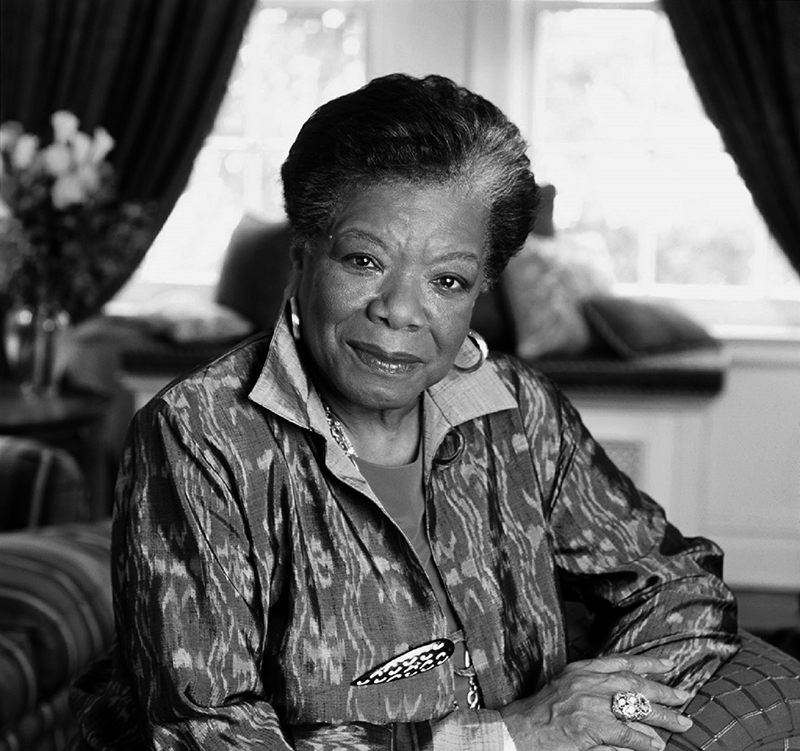
“…People need more freedom, people need more courage. Courage is the most important of all the virtues because without virtue you cannot practice any other virtue consistently…”
ASM: If you were actually born today, what would you imagine your greatest ambition to be given the circumstances around us and what remains to be done?
MA: Oh my dear! What remains to be done is to have young people not ask “What remains to be done?” You can see for yourself what remains to be done. People need more freedom, people need more courage. Courage is the most important of all the virtues because without virtue you cannot practice any other virtue consistently. You can be anything occasionally but to be that thing time after time you have to have courage. So you develop courage by doing small things with courage; then do little bigger things, and then do larger things until finally you do huge things with courage. There will be some people that will have more courage than others but it does not matter; and that is still good. I do not know what anybody should not do.
ASM: If you could capture an essence of any African culture or Pan African spirit that is very different from the United States, what does it feel like to you? What does Africanesque or Africaness feel like to you?
MA: Hmm…well, there are so many the of Africanisms current in American life because our ancestors, our people brought here as slaves kept so many of the cultural actions, inactions and reactions. So when I lived in Ghana, I was surprised to find so many things that I thought were African-American, were really African. For example calling people Aunty, Uncle, Sister or Brother indicated familiar ties and respect- and was brought over to the States and they are still here; along with so many other things. I think we way we used to treat the adults and the elderly is African for the most part. We are losing some of that because not enough adults tell the young people that it would be wise of them to respect their elders. It is not only graceful, gracious and courteous, but it wise to respect the ancestors. People live in direct relation to the Heroes and Sheroes they have….always.

